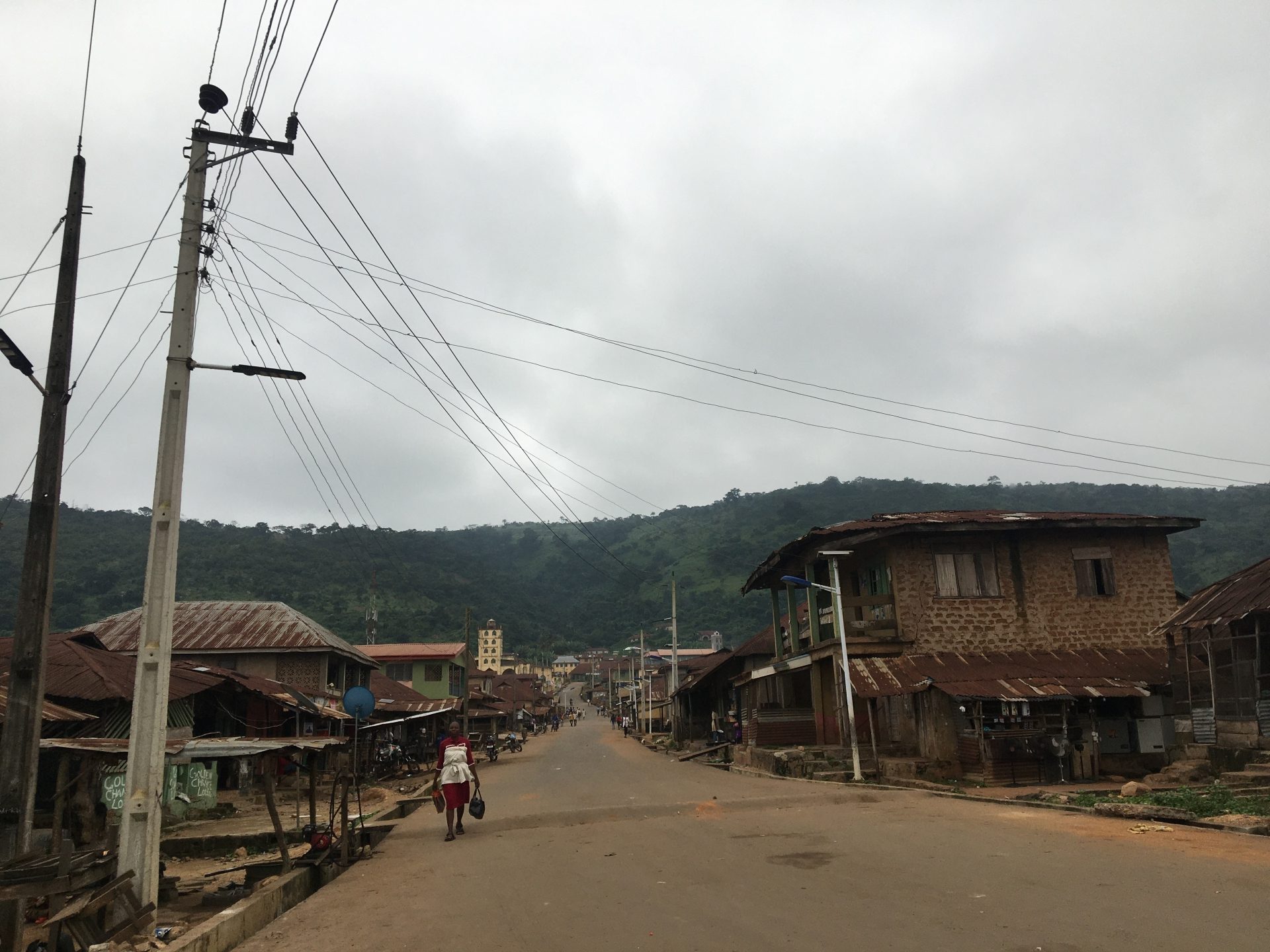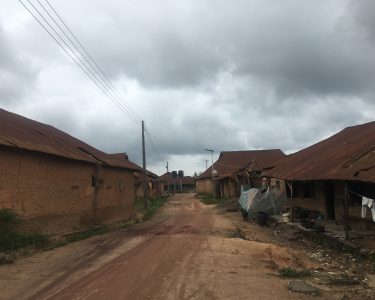Esa Oke Faces Infrastructural Decay: Elder Oluwagbemiga Speaks Out
Elder M.O. Oluwagbemiga, a respected community leader in Igbaye, Ekoro area of Esa Oke, has raised alarm over the pressing infrastructural challenges confronting the town.
“The road from Esa Oke to Imesi and Ekiti is bad,” he lamented, stressing that the poor road network remains a major concern for residents.
Beyond the roads, Elder Oluwagbemiga also highlighted the absence of proper drainage systems. “Given that houses are close to the mountains and hilly areas, during the rainy season, flooding is often uncontrollable. Most of our land gets eroded in the process,” he explained.
He further recalled a tragic incident where heavy flooding once caused a house located near a flowing stream to sink completely, underscoring the devastating impact of neglect.
Esa Oke: A Neglected Border Town in Osun State
Esa Oke, a border town in the Obokun Local Government Area of the Ijesa North Federal Constituency, within the Ife/Ijesa Senatorial District of Osun State, exemplifies the plight of many border communities in Nigeria. Too often, such towns are sidelined in the distribution of essential amenities, leaving residents to struggle with neglect and underdevelopment.
The absence of adequate roads, reliable electricity, and functional healthcare facilities defines the daily reality of the people. Their remoteness from the state capital only deepens this marginalisation, as government developmental plans rarely prioritize their needs.
This neglect comes at a heavy cost. The lack of infrastructure not only undermines the well-being of residents but also compels them to depend on neighbouring states for basic services. Worse still, the vacuum of development exposes them to heightened security risks, making their vulnerability both social and economic.
Esa Oke’s condition is a stark reminder that border communities deserve equal attention in planning and investment. Ignoring them is not just an oversight—it is a failure of inclusive governance.
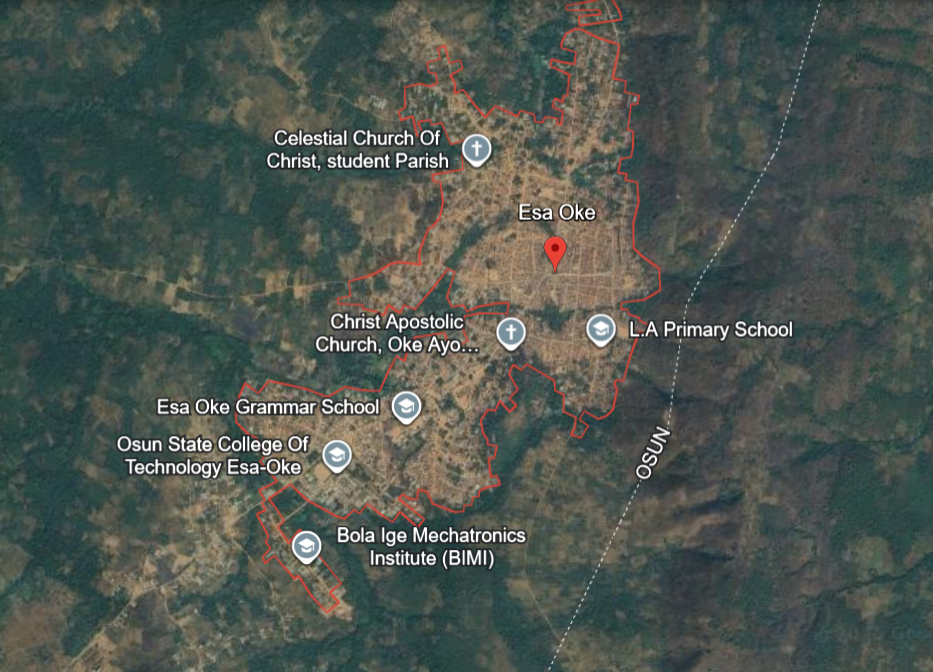
Osun: The Heart of the South West and the Neglect of Its Border Communities
Generally regarded as the geographical centre of the South West, Osun State is often described as the “heart” of the region because of its strategic location, which makes it easily accessible from every part of the zone. The state shares boundaries with Oyo to the west, Ogun to the south, Ondo to the east, Ekiti to the northeast, and Kwara to the north.
Despite this central positioning, many communities along Osun’s borders suffer neglect in the distribution of infrastructural amenities. Their remote distance from Osogbo, the state capital and seat of government, often results in their exclusion from developmental planning. Consequently, these border communities endure poor road networks, inadequate healthcare, unreliable electricity, and limited access to other basic services, leaving them vulnerable and marginalised.
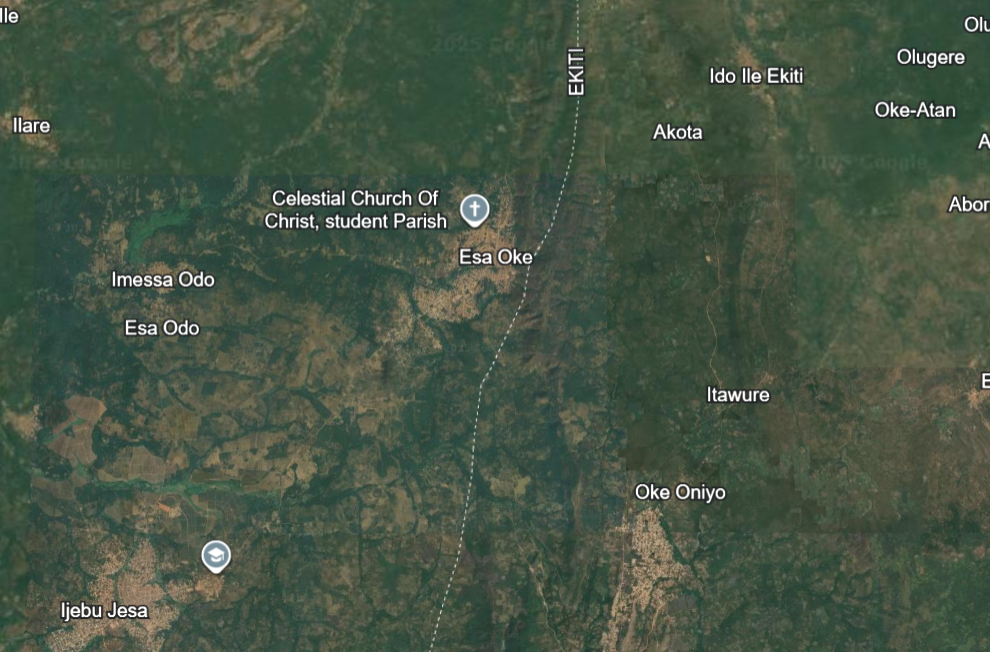
Epileptic Power Supply
Elder Oluwagbemiga further highlighted the state of electricity in the community, describing it as very poor. “There has not been light for about a month now,” he lamented. He explained that the transformer currently serving the community is damaged, while the alternative transformer they were connected to is unreliable.
He recalled a past government intervention where electricity poles were brought into the community as part of a project to improve power supply. “During that time, we, the community leaders, even booked hotels for them for a whole week, but the project was never completed,” he said. According to him, despite reports that the contractor had been fully paid, the project remains abandoned, leaving residents in continued darkness.
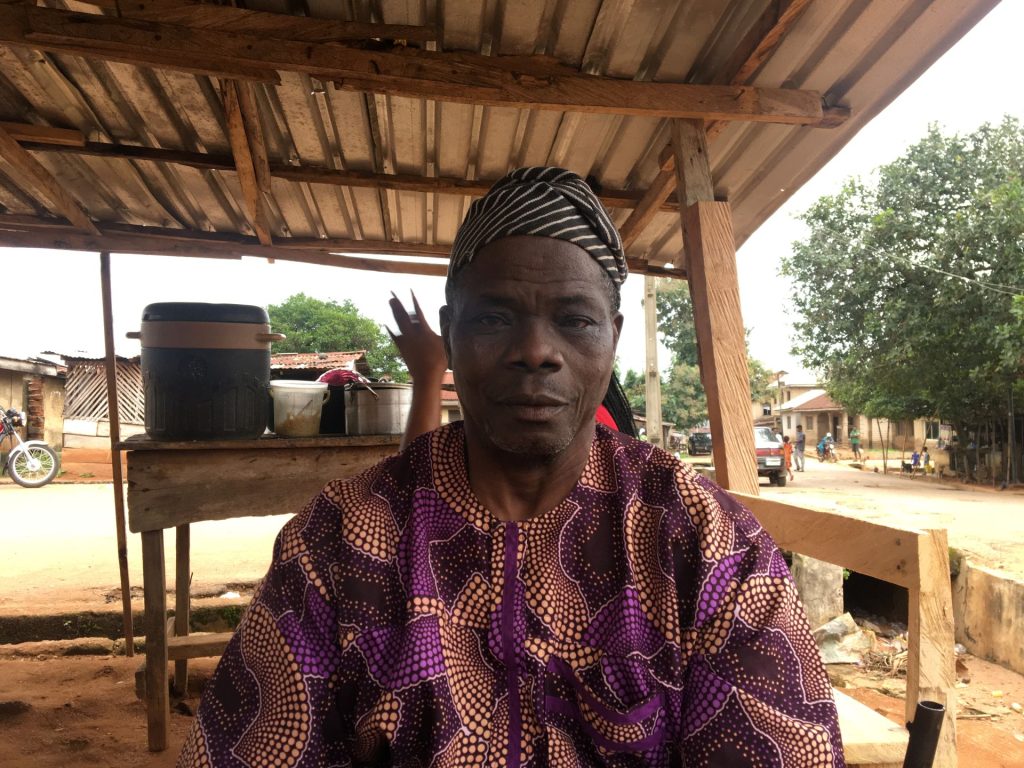
The Issues are Pervasive
Chief Olayinka Babajide, the Ya Gbata of Esa Oke, acknowledged the government’s efforts but pointed out lingering challenges. “Our roads are very bad. We have not seen the government’s intervention in that regard. Also, our electricity is not consistent. We are likely facing these problems because we are at the boundary of the state,” he stated.
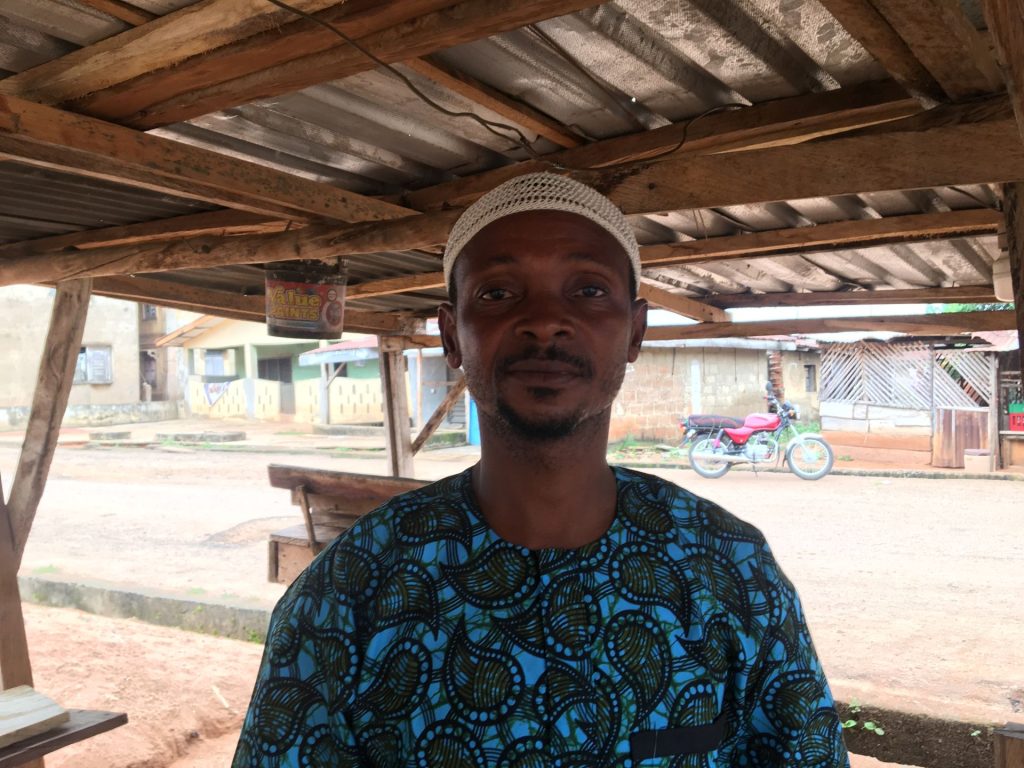
Kehinde Adegoke, another resident, stressed that Esa Oke urgently needs improvements in electricity, water, and good roads. “If a community is going to develop, it starts with proper electricity,” he said. He also highlighted the need for job opportunities and skills empowerment programmes for the youth. “Indigent students and apprentices are in need of help,” he added.
Mrs. Adebayo, an indigene and long-time resident of Esa Oke, described the town as a good place in need of support. “The only advantage in Esa Oke is OSCOTECH. If other companies or organisations can be established in the community, it would be greatly appreciated,” she said. She explained that once students go on holiday, the community becomes unusually quiet. She also noted that the poor state of the roads remains a pressing challenge.
Mrs. Adebayo further emphasised the importance of government support for the growth of OSCOTECH, pointing out that not everyone has the means to relocate. “Those who remain in the community should be able to enjoy the benefits,” she insisted. On the business climate, she added: “Our businesses are being affected by the lack of good roads. Some have goods, but due to the fear of having their vehicles damaged, they have to go elsewhere. Most trades take place around the campus area, while residential areas like ours are neglected because of the bad roads.”
Road linking Esa Oke with Imesi and Ekiti
Evangelist Owolabi Adeniran, another community leader, reiterated the concerns raised by Elder Oluwagbemiga about the stalled electricity project. “The government then promised that they would provide us with a 500kVA transformer,” he recalled. According to him, although the contractor brought poles to begin the work, he later complained that the rainy season hindered progress and asked to return during the dry season. This happened around 2013/2014.
Evangelist Adeniran explained that before the project commenced, Kunle Ige, the then Special Adviser to the Governor on Water Resources, Rural Development, and Community Affairs under Rauf Aregbesola’s administration, assured residents that the project would be completed. However, the contractor never finished the job, and to this day, the community does not even know his name. “Since then, we have been abandoned. We are only using a single phase of electricity here,” he lamented.
He also spoke about the devastating impact of erosion in Esa Oke. “If you have a building here but you are not living here and you are not careful, within a short period the building will collapse,” he warned. “It is only if you are living here that you will be able to control the erosion.” He appealed to the government to provide good roads, noting that improved infrastructure would help reduce erosion and protect properties.
Video of land affected by erosion and electricity poles on the ground
Mrs. Fadahunsi Christiana, a resident of Esa Oke, expressed her frustration about the state of electricity in the community. “For the past four days, we have not had light. We are not enjoying electricity,” she said, noting that power supply is often inconsistent, with some areas having electricity while others remain in darkness. On business opportunities, she observed that traders located close to the campus benefit the most, while others struggle due to the uneven development in the community.
The Osoolo of Esa Oke, Mr. Ojo Emmanuel Adebanji, also shared his perspective, emphasizing that government presence is most visible in the educational sector. He acknowledged that some primary and secondary schools in the community meet acceptable standards, but stressed that others, such as Saint Joseph High School, urgently need intervention. “In schools, we should not have less than the required number of teachers needed. The government should help us look into this,” he appealed.
Mr. Ojo further highlighted the poor state of the road leading to Imesi, describing it as unsafe to travel at night due to security risks. He noted that farming remains the primary occupation of residents, yet the bad roads severely hinder the smooth transportation of farm produce. He also pointed out that the streetlights along the Imesi road were installed through the efforts of Senator Fadahunsi Francis, the senator representing Osun East constituency, which he described as a significant government intervention.
Adverse Effects of Shut Local Governments
Evangelist Adeniran acknowledged that many of the roads in Esa Oke are classified as rural access roads. However, he explained that residents have no channel through which to lodge complaints or seek redress because local governments in the state are currently non-functional. “If the state government can assist, we will be very grateful,” he appealed.
Local government operations in Osun State have been paralyzed for 170 days, following their shutdown on February 17, 2025. Since then, workers in all 30 Local Government Areas have stayed away from their offices, acting on a directive from Dr. Nathaniel Ogungbangbe, President of the Nigeria Union of Local Government Employees (NULGE) in the state.
The directive came amid a fierce power struggle between the ruling Peoples Democratic Party (PDP) and the opposition All Progressives Congress (APC) over control of the councils. The crisis turned violent in February, leaving at least six people dead, including Remi Abbas, the APC-elected chairman of Irewole Local Government. Although APC-backed chairmen have since taken over the secretariats, the absence of civil servants has left local government operations completely stalled.
Boundary Disputes with Neighbouring Communities
Elder Oluwagbemiga reported that residents of Efon and another neighboring village recently clashed with those of Esa Oke over a boundary dispute. He explained that this conflict is an extension of the long-standing disagreement between Esa Oke and Ido Ajegunle. Earlier in February 2025, gunmen invaded Esa Oke, resulting in the deaths of four residents and injuries to several others. Violence flared again on June 19, leaving over 100 people reportedly injured and several feared dead in Ido Ajegunle. In July, the people of Esa Oke denied any involvement in the clash and appealed to Governor Ademola Adeleke to act on the recommendations of the peace and reconciliation panel established to address the protracted land and chieftaincy disputes between the two communities. Aside from these boundary-related issues, Elder Oluwagbemiga emphasized that Esa Oke is generally a safe community.
Government’s Help is Needed
After outlining the community’s numerous challenges, Elder Oluwagbemiga urged the government to intervene by providing reliable electricity, proper drainage systems, and bridges where necessary. He emphasized that even areas with existing drainage infrastructure are inadequate to withstand heavy flooding. Consequently, he called on the authorities to address these critical deficiencies to safeguard the community and improve residents’ quality of life.
Drainage and road
Chief Olayinka Babajide also appealed for government intervention, emphasizing the urgency of improving infrastructure in Esa Oke. He stated, “In a town like this that has a higher institution, our roads should not be like this.” He highlighted the critical need for stable electricity, particularly for students at the Osun State College of Technology, noting that reliable power is essential for studying and daily activities. “Not all students have money for solar panels or generators. Government intervention will ease a lot of stress,” he said. Chief Babajide further explained that the provision of electricity would also stimulate business and trade in the community. All sources consulted for this story concluded by urging the government to act, emphasizing that meaningful intervention is necessary for tangible change in Esa Oke.
OSCOTECH Students Bemoan
An AfrikTimes reporter visited the Osun State College of Technology (OSCOTECH), the state-owned institution located in Esa Oke, to speak with students and gain insight into the challenges they face as residents of the community.
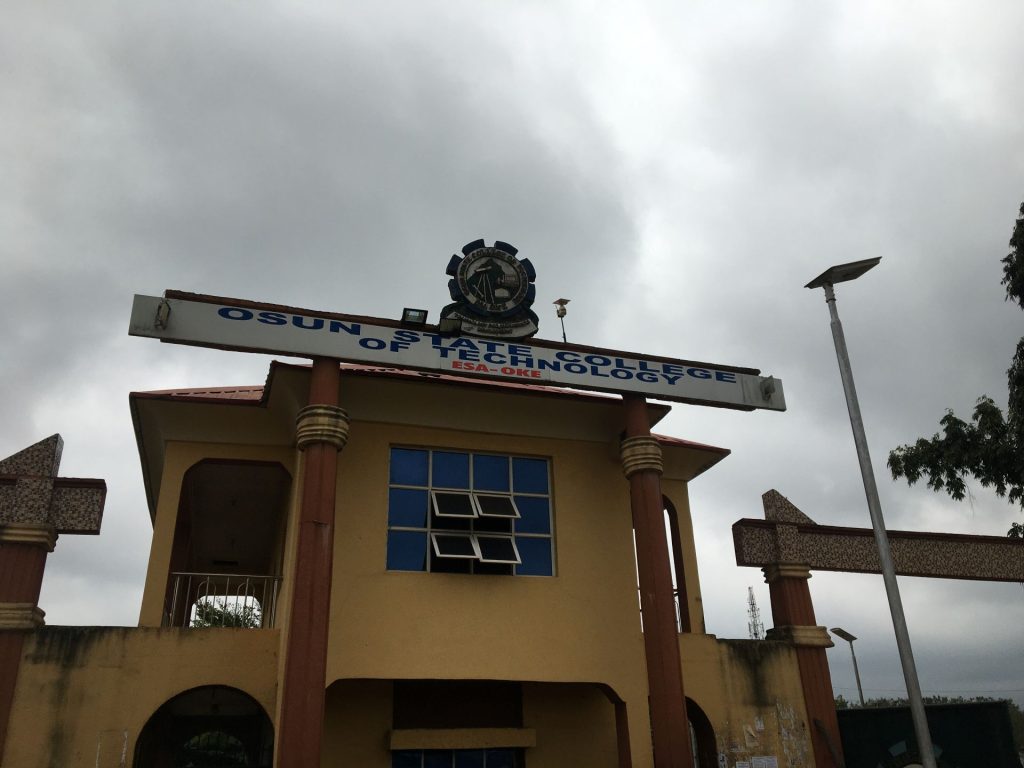
Omotola described the electricity situation in Esa Oke as “worse,” explaining, “Sometimes, the power can be cut for almost five days.” She noted that there is currently a slight improvement compared to their experiences last semester. Beyond electricity, she highlighted other challenges, stating that students living in certain areas have complained about water quality adversely affecting their skin. Omotola also observed, “There are no supermarkets or malls in Esa Oke. Most people here are focused on selling clothes.”
Samuel echoed the concern over electricity, noting that it is a scarce resource in Esa Oke. He added, “The cost of living is very high. Food is expensive. There is a rumour among students who stay in Esa Oke that whenever we students go on holidays, prices become cheaper.” Samuel described the electricity situation as having deteriorated further, stating, “There was light yesterday, but it lasted for less than thirty minutes. Situations like these affect us, as we need electricity for our studies.” Originally from Lagos, Samuel expressed frustration over the lack of job opportunities for students in Esa Oke, leaving them dependent on parents and sponsors.
Adelola highlighted safety concerns near the campus, particularly recurring fights. She said, “Sometimes we are given a week’s break because of fights among cultists.” Residing in Abeokuta, the Ogun State capital, she firmly emphasized that Esa Oke is a village and cannot be compared to Abeokuta in terms of infrastructure and amenities.


